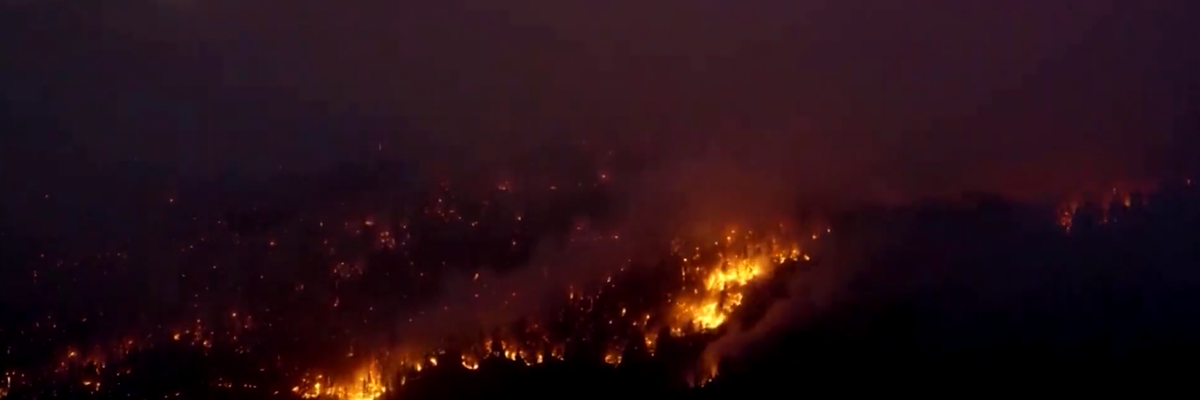Nearly 22,000 residents of Yellowknife—the capital of Canada's Northwest Territories—and the surrounding area were rushing to flee their homes on Thursday under an evacuation order, as wildfires posed what the province's environment minister said was a "real threat to the city."
The residents have until noon on Friday to evacuate, with officials advising those who live near Kam Lake, Grace Lake, and in the Engle business district to leave their homes as quickly as possible. The First Nations communities of Dettah and Ndilo, which neighbor Yellowknife, were also ordered to evacuate.
The closest blaze was about 11 miles from Yellowknife as of Wednesday and fire information officer Mike Westwick told reporters at a news conference Wednesday evening that the fire could reach the outskirts of the city by the weekend.
Environment Minister Shane Thompson told the public that with the fire threatening both air and road travel in the coming days, "the window of opportunity right now is going to allow us to evacuate everybody safely."
"We need you to do it now," he told residents.
The evacuation order came as Western Canada faced a heatwave that broke 19 daily temperature records on Tuesday, fueling hundreds of wildfires.
In June, climate scientists were alarmed by rapidly spreading wildfires in the eastern province of Nova Scotia. Wildfires are relatively common in Canada's landlocked western provinces rather than in the Atlantic region and near Yellowknife, which lies just 250 miles south of the Arctic Circle.
"This is the north," said author and climate advocate Naomi Klein, calling the scenes in Yellowknife on Thursday "harrowing."
Three centers in Alberta, which borders the Northwest Territories, were set up on Thursday to house people who are unable to find accommodations.
Officials advised residents to travel away from the city rather than seeking refuge on islands in the nearby Great Slave Lake because the air quality is expected to become unhealthy rapidly as the fire approaches.
For people who were unable to travel out of Yellowknife by car, evacuation flights were scheduled to begin on Thursday.
Following social media reports that Air Canada was price gouging flights out of Yellowknife, the airline assured Canadian Transport Minister Pablo Rodriguez that it would cap prices during the evacuation order.
The fires in the province are just one of many that have devastated communities or are currently threatening devastation as scientists warn that continued fossil fuel emissions are making the wildfires far more destructive than they would be otherwise. Also on Thursday, thousands of people in Tenerife, one of Spain's Canary Islands, were evacuated due to a wildfire that emergency workers were struggling to contain.
"We're all tired of the word unprecedented, yet there is no other way to describe this situation in the Northwest Territories," said Northwest Territories Premier Caroline Cochrane.
